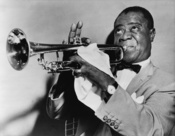�PAGE �
A Brief History of Music
I. Introduction
Music-sounds arranged into meaningful- expressive patterns. The composing and playing of music is both a science and an art. Musicology is the study of music as a field of knowledge, with emphasis on history and theory.
The raw materials of any kind of music are certain characteristics of sound-pitch (highness or lowness), timbre (tone color), intensity (loudness), and duration. These raw materials are organized by means of the basic elements of rhythm (the pulse, or beat), melody (the tune), and harmony (the blending of tones).
Music is often called the universal language because its meaning and appeal are largely the same for people everywhere. It has almost limitless variety. Music can express the widest range of human experience and feeling-joy and grief, love and hate, amusement and reverence. It may be vocal or instrumental, and may be performed by soloist or by orchestra, band, or chorus.
Moreover, Jazz is a form of music that developed in the United States between 1900 and 1915. The origin of the word is uncertain. The music was created originally by the American Negro, but within 40 years it was being performed and created by people of every national and racial background. By the 1940's no phase of contemporary American music, serious as well as popular, remained untouched by jazz. Jazz bands, magazines, and festivals are found in Japan, in South America, in North Africa, and throughout Europe (O'Meally, 2002).
Jazz is difficult to define, and not even jazz musicians and critics agree on a definition. It is a performer's art, a way of playing. Jazz cannot be written down to show the precise manner in which it is played. It is most accurately preserved not in published scores but on phonograph records.
This paper discusses...


